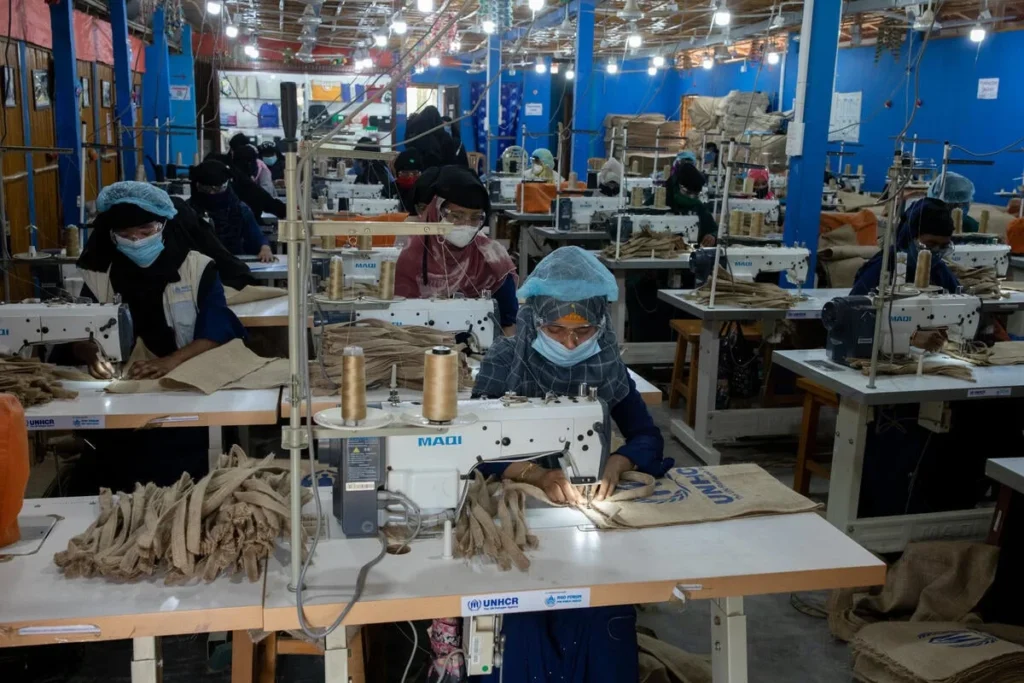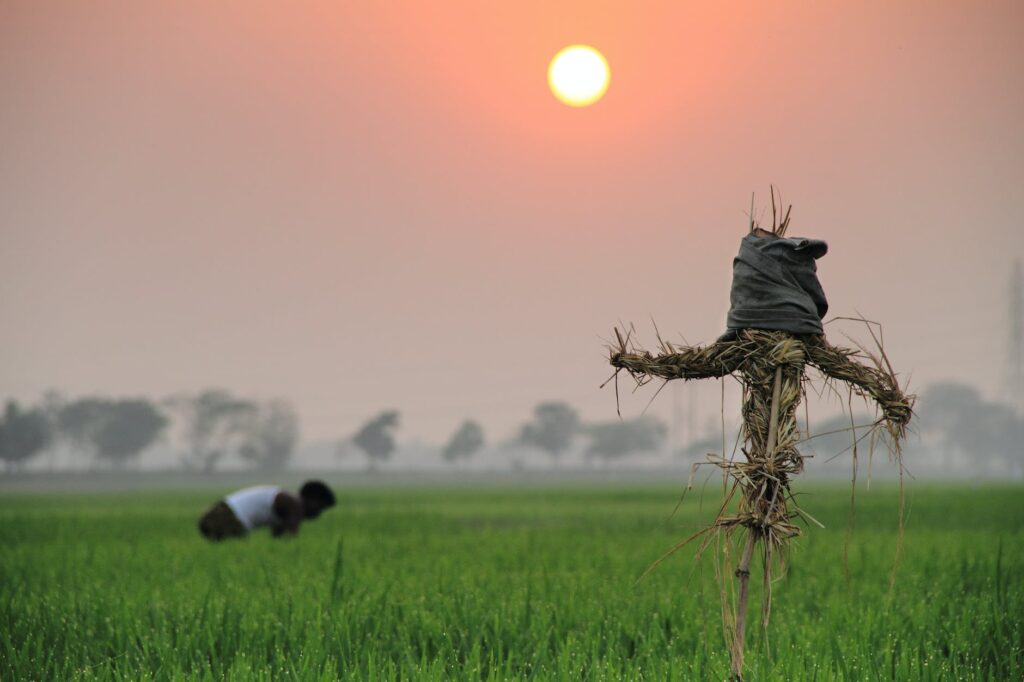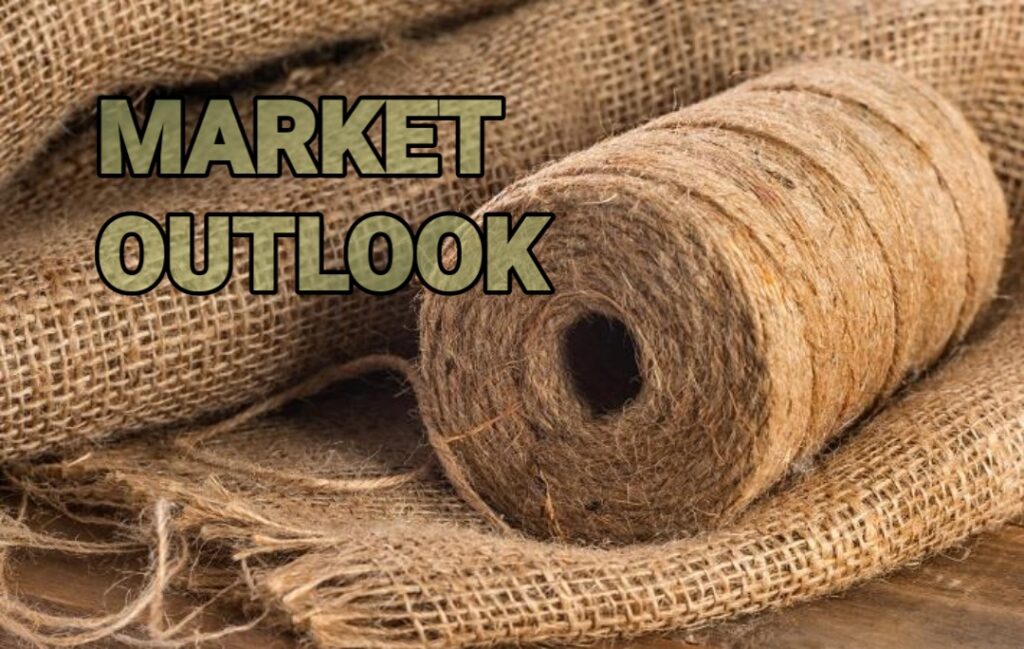This post discusses initiatives by the UNHCR at the Rohingya Kutupalong Camp to empower refugees at the world’s largest refugee camp by providing sustainable employment. The production of jute bags and jute goods stands as a crucial economic activity that not only fuels the economy but also sustains rural communities and uplifts impoverished populations across Bangladesh and numerous other agricultural countries. In Bangladesh, where jute holds significant cultural and historical importance, the jute industry serves as a lifeline for millions of rural farmers and artisans.
By cultivating jute and participating in the production of jute bags and jute goods, these communities gain access to vital sources of income and employment opportunities, thereby alleviating poverty and enhancing livelihoods. Furthermore, the jute industry fosters a sense of self-reliance and empowerment among rural populations, empowering them to contribute actively to the nation’s economic growth and development.
Beyond Bangladesh, in agricultural countries worldwide, the production of jute bags and goods serves as a catalyst for socio-economic progress, offering a pathway to prosperity for vulnerable communities and underserved populations. Through sustainable jute cultivation and value-added processing, the jute industry not only generates economic wealth but also fosters social cohesion and resilience, ensuring a brighter and more prosperous future for all involved.
How Jute Bags are made in the World’s Largest Refugee Camp
Contents
Jute Bag Production Process at the Rohingya Kutupalong Camp
Welcome to the heart of jute bag production at the Rohingya Kutupalong Camp. In this bustling centre, refugees are not just recipients of aid; they are active participants in crafting sustainable solutions for their community. Join us as we delve into the process of making jute bags, a vital lifeline for distributing essential items within the camp.
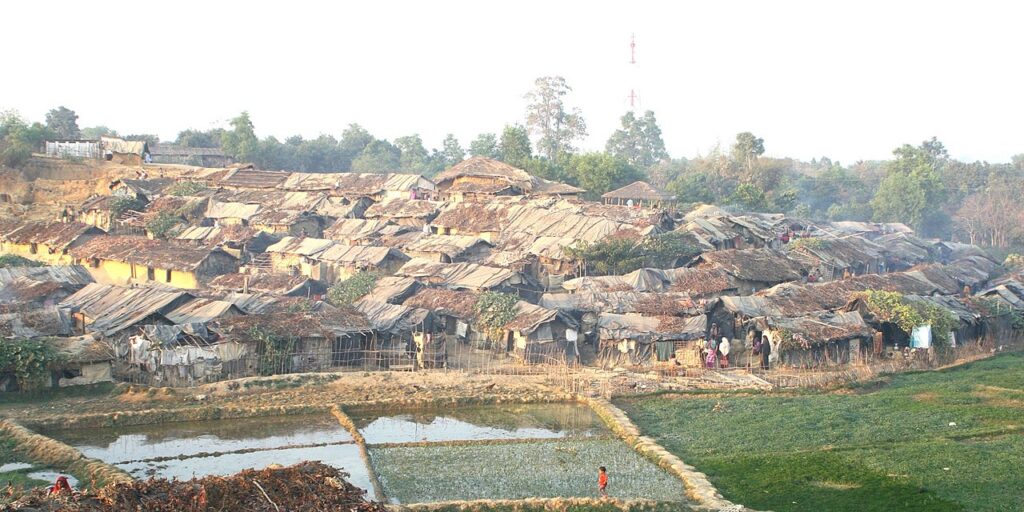
1. The Cutting Section
At the onset of the production process lies the cutting section. Here, raw jute fabric sourced from local mills is meticulously cut to size, laying the foundation for the creation of durable jute bags. Each piece of fabric holds the promise of providing livelihoods and empowerment to those involved in its transformation.
2. Printing and Customisation
Next comes the printing stage, where the UNHCR logo is adorned on the jute bags, infusing them with a sense of purpose and identity. With skillful hands and vibrant colours, the bags come to life, ready to serve as carriers of hope and resilience.
3. Handle Sewing and Customisation
In the handle sewing section, artisans deftly attach handles to the bags, adding functionality and convenience. Beyond grocery bags, the versatility of jute extends to the production of file covers, laptop sleeves, and various promotional items, showcasing the adaptability of this eco-friendly material.
4. Production and trimming
In the main production room, the printing and sewing processes seamlessly come together, culminating in the creation of finished jute bags. With precision and efficiency, each bag is trimmed and packaged, ready to be distributed and utilised within the camp.
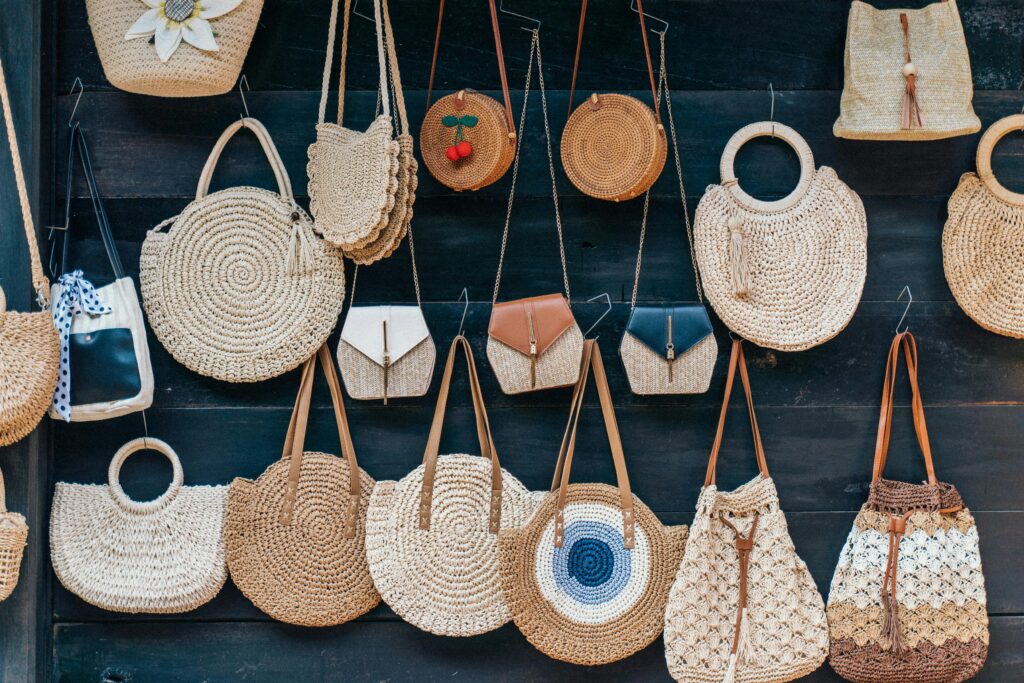
Promoting Sustainable Livelihoods
The production of jute bags not only fulfils practical needs but also fosters a sense of community and empowerment among refugees. By engaging in meaningful work, individuals find purpose and dignity, paving the way for a brighter and more sustainable future.
Conclusion
As we witness the intricate process of jute bag production at Rohingya Kutupalong Camp, we are reminded of the transformative power of collaboration and innovation. Through initiatives like these, refugees are not just survivors; they are agents of change, contributing to the fabric of their community and beyond.
Learn more about:
- Rohingya Kutupalong Camp
- Jute Bag Production
- Sustainable Livelihoods
- Empowerment of Refugees
- UNHCR Initiatives
MASK Associates is proud to operate as a social business. We understand that caring for the environment and the livelihoods of rural people is equally as important as profitability.
The impact of the business on people or environment, rather the amount of profit made in a given period measures the success of social business. Sustainability of the company indicates that it is running as a business. The objective of the company is to achieve social goals.
Yunus Centre
MASK Associates is a leading exporter of top-tier jute and jute-based products from Bangladesh. Our commitment to excellence, innovation, and technology guarantees superior jute sourced from premier fibres globally.

